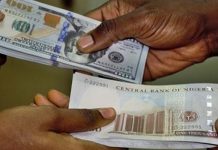The Central Bank of Nigeria (CBN) has ended its open market operation (OMO) bills holiday after more than seven straight months of abstinence from conducting primary market auctions. Separate market analysts said the move may not be unconnected with the apex bank’s efforts to attract foreign portfolio investors into the foreign currency-starved economy.
“The issuance comes against the backdrop of persistent pressures on the naira, evidenced by widening official and parallel market rates despite CBN reforms”, Afrinvest said in a market update. On 10 August, the CBN auctioned its first OMO bills since 29 December 2022 with higher spot rates across tenors amidst analysts’ expectation of a further surge in headline inflation.
The CBN resumes OMO bill auction sales with a total offer of N150 billion split across 96-day, 187=day, and 362-day, according to market results. Despite the high subscription level relative to the offer, analysts at Cordros Capital Limited told investors that the stop rates averaged 12.49%, trailing Nigeria’s average inflation rate.
Investors showed interest in 362-day OMO bills was higher as fund/asset managers and other market participants sought to lock in N191.5 billion against an offer worth N80 billion, which was exactly what the CBN sold. At the belly and end of the curve, demand was also strong after CBN’s long holiday from holding auctions.
Though the apex bank offered 187-day OMO bills worth N40 billion, investors’ subscriptions came at N67.9 billion. The auction result showed that N40 billion offered was accepted. For 92-day OMO bills, investors’ demand was higher at N48.50 billion compared to N30 billion that was offered for subscriptions.
The 96-day OMO bills spot rate was 10.00%, 187-day was offered at 12.98% and 362-day attracted 14.49% – exceptionally higher than 8.50% mean level at the December 2022 auction, according to analysts.
“In our view, after previously unwinding its OMO portfolio, this auction represents one of the short-term fixes for the CBN to attract foreign portfolio investors (FPIs) into the market amid concerns that the Treasury bills yields are too low to attract foreign investors”, Cordros Capital analysts said.
Fixed income market analysts said they are cautiously optimistic that active OMO operations with competitive interest rates will complement recent FX reforms and may be a short-term fix needed to bring FPIs back to the FX market,
They added that the preceding suggests a bifurcation of interest rates where rates are high for foreign investors (OMO bills) but low for domestic investors (Treasury bills). This is coming at the time the Debt Management Office continues to keep borrowing costs low.
“… Bringing back OMO as a tool for attracting foreign investors takes us back to the unorthodox monetary policy era and will come at a considerable cost to the CBN’s balance sheet”, Cordros Capital said.











